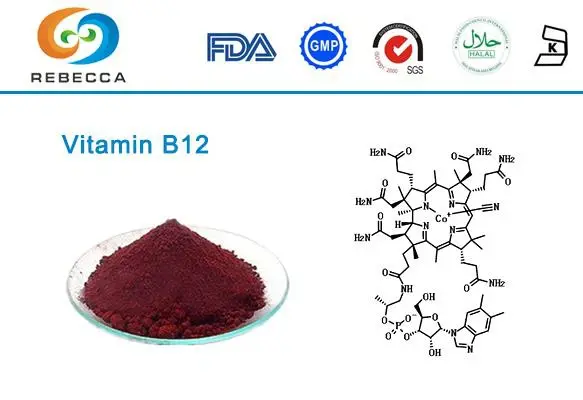Is It OK To Take Vitamin B12 Daily?
Safety and Tolerance
Vitamin B12, also known as cobalamin, is a crucial water-soluble vitamin essential for various physiological processes, including the formation of red blood cells, neurological function, and DNA synthesis. It plays a vital role in producing myelin, the protective sheath surrounding nerves, which is necessary for the proper functioning of the brain and nervous system. Additionally, B12 is required for metabolizing homocysteine, an amino acid that, in high levels, may increase the risk of cardiovascular disease. Ensuring adequate B12 intake is essential for overall health.
It is typically considered safe for most people, even when taken in big amounts. The possibility of poisoning is reduced because it is a vitamin that dissolves in water and any excess is removed through urine. Most adults take about 2.4 micrograms per day, while the RDA varies by age, gender, and stage of life. Malabsorption, dietary limitations, or certain medical conditions can create deficiencies, which can lead to major health problems such as anemia, tiredness, and neurological difficulties. Therefore, those who don't receive enough B12 from their meals, such as older people and vegetarians and vegans, frequently need to take supplements.
The two types of vitamin B12 commonly found in supplements are methylcobalamin and cyanocobalamin. Even though both are believed to be safe, some people may get nausea or rashes. Before beginning any supplement regimen, speak with your doctor, particularly if you are taking medication or have a medical condition. A balanced diet must include vitamin B12. It increases energy, enhances cognitive function, and helps prevent diseases linked to deficiencies when taken as prescribed. For optimum health, adequate consumption of this vital nutrient is required.

Recommended Daily Allowance (RDA)
Experts in the field of health came up with the guidelines that are referred to as the Suggested Daily Stipend (RDA) for various supplements in order to help people understand the appropriate admission levels that are expected to maintain health and prevent supplement deficiencies. The RDA considers age, orientation, and life stage, including pregnancy and lactation. These recommendations for vitamins and minerals are intended to meet the needs of nearly all healthy people in a particular demographic group to ensure optimal physiological functions and promote overall health.
The recommended daily allowance (RDA) for vitamin B12 varies by population. The RDA is typically 2.4 micrograms (mcg) for most adults. The majority of healthy people typically require this amount to meet their requirements. But some groups might require more. To support both their own health and the health of their unborn children, pregnant women should consume approximately 2.6 mcg per day and breastfeeding mothers should consume 2.8 mcg per day. Even though the body only needs a small amount of B12, a deficiency can have serious consequences for one's health, so it's critical to consume the recommended daily intake.
Vegetarians and vegans frequently encounter difficulties in meeting their daily vitamin B12 requirements due to the fact that animal products like meat, dairy, and eggs contain the majority of the vitamin. As a result, people who don't eat these foods should think about fortified options like plant-based milks or specific cereals that have added nutrients. Supplements may also be beneficial. A lack of B12 can prevent fatigue, cognitive impairment, and anemia. Regular B12 levels monitoring and medical advice can also prevent these symptoms.
Maintaining health and preventing deficiencies involves understanding and following the recommended daily allowance (RDA) for nutrients. When assessing the right intake of vitamin B12, it’s important to consider factors like diet, life stage, and overall health. Those at risk of deficiency can meet their RDA by adjusting their diet and potentially adding supplements. A well-balanced diet that provides adequate vitamin B12 is vital for supporting energy levels, neurological health, and overall well-being.

Forms Of Supplementation
Vitamin B12 supplements should be considered for vegetarians, vegans, elderly people, and those with certain medical conditions that make it difficult for the body to absorb the vitamin. There are various forms of vitamin B12 available, each with its own set of advantages and disadvantages. Customers can select the supplement that best meets their requirements thanks to this selection. Individuals can help ensure that they meet their nutritional requirements and support their overall health and well-being by selecting the appropriate form of vitamin B12.
Hydroxocobalamin, cyanocobalamin, methylcobalamin, and adenosylcobalamin are the supplements that are taken the most frequently. The most common form of cyanocobalamin can be found in fortified foods and supplements. It is renowned for its stability and capacity to raise blood B12 levels. The body converts cyanocobalamin into its active forms after consumption: methyl and adenosylcobalamin, respectively. As a result, it is a popular and cost-effective option for B12 supplementation.
Methylcobalamin is often highlighted as a more bioactive form of B12, essential for processes such as methylation, DNA synthesis, and maintaining nervous system health. Naturally occurring in the body, it’s preferred by those with metabolic conditions that make it difficult to convert cyanocobalamin into active forms. Another active type, adenosylcobalamin (or dibencozide), aids in cellular energy production within the mitochondria, benefiting those seeking an energy boost, like athletes or those experiencing fatigue. Hydroxocobalamin, a naturally occurring B12 form, is often administered via injection due to its extended half-life, making it particularly effective for addressing malabsorption issues or severe deficiencies in clinical settings.
Vitamin B12 supplements are available in several forms, including tablets, capsules, sublingual tablets (which dissolve under the tongue), and injectable options. Many people with gastrointestinal absorption issues prefer sublingual tablets because they enable faster absorption directly into the bloodstream. In contrast, injectable B12 is typically administered under medical supervision in clinical settings. It is often chosen by individuals with severe deficiencies or malabsorption conditions because it can quickly elevate B12 levels.

Considerations For Daily Use
While the vast majority track down it protected to take vitamin b12 powder each day, there are a couple of significant things to remember:
Having a medical professional consult you: Before starting any new supplement regimen, it’s important to consult a healthcare professional. This is especially crucial if you are on medication or have any existing health conditions. A doctor or nurse can guide you on the appropriate dosage and timing for B12 supplements if you need them.
Potential connections: Despite the generally low risk, B12 can interact with some medications. Metformin, a common diabetes medication, may hinder B12 absorption, for instance. Additionally, B12 metabolism may be affected by some anticonvulsants and antibiotics. If necessary, your medical services supplier can change your therapy plan and illuminate you about possible communications.
Underlying medical conditions: Certain health conditions can hinder your body’s ability to absorb or utilize vitamin B12. These include atrophic gastritis, pernicious anemia, Crohn's disease, celiac disease, and HIV. If you have any of these conditions, you may need to increase your B12 intake or consider alternative methods of supplementation.
Dietary restrictions: Vegans and vegetarians may be more likely to be deficient in this vitamin because it is primarily found in animal products. You may need to take B12 supplements or consume foods with B12 added to meet your nutritional needs.
Factors related to age: It may become harder for us to absorb it from food as we get older. For adults over 50, B12 supplements or foods with added B12 are frequently recommended.
The signs of a lack: If you experience symptoms of a B12 deficiency, such as fatigue, weakness, memory issues, or tingling in your hands and feet, it's important to see a doctor promptly. They can assess your B12 levels and recommend a daily supplementation plan if needed.
Qualitative quality: When choosing a daily supplement, go with B12 supplements from reputable manufacturers. Look for supplements that have been pariah gone after for flawlessness and power.
Vitamin B12 Powder Manufacturer
Rebecca Bio-Tech is a reputable manufacturer of it, providing a product with a purity level of at least 99 percent. Rebecca Bio-Tech is well-equipped to satisfy the requirements of both consumers and businesses, as its annual production capacity exceeds 1000 kilograms.
Vitamin B12 powder is an excellent choice for those seeking more control over their supplements. It easily mixes into foods or beverages, allowing for precise dosage. This form is particularly beneficial for individuals who struggle with swallowing pills or wish to avoid the extra ingredients often found in tablets or capsules. While both forms can address B12 deficiency, some people prefer methylcobalamin due to its more bioactive nature.
For more information about Rebecca Bio-Tech’s B12 powder or purchasing details, you can reach out to them directly at information@sxrebecca.com. To ensure quality and safety, always buy supplements from reputable vendors.

References
1. Institute of Medicine (US) Standing Committee on the Scientific Evaluation of Dietary Reference Intakes. (1998). Dietary Reference Intakes for Thiamin, Riboflavin, Niacin, Vitamin B6, Folate, Vitamin B12, Pantothenic Acid, Biotin, and Choline. National Academies Press (US).
2. Allen, L. H. (2009). How common is vitamin B-12 deficiency?. The American Journal of Clinical Nutrition, 89(2), 693S-696S.
3. Carmel, R. (2008). How I treat cobalamin (vitamin B12) deficiency. Blood, 112(6), 2214-2221.
4. Stabler, S. P. (2013). Vitamin B12 deficiency. New England Journal of Medicine, 368(2), 149-160.
5. Green, R., Allen, L. H., Bjørke-Monsen, A. L., Brito, A., Guéant, J. L., Miller, J. W., ... & Yajnik, C. (2017). Vitamin B12 deficiency. Nature Reviews Disease Primers, 3(1), 1-20.
6. O'Leary, F., & Samman, S. (2010). Vitamin B12 in health and disease. Nutrients, 2(3), 299-316.








